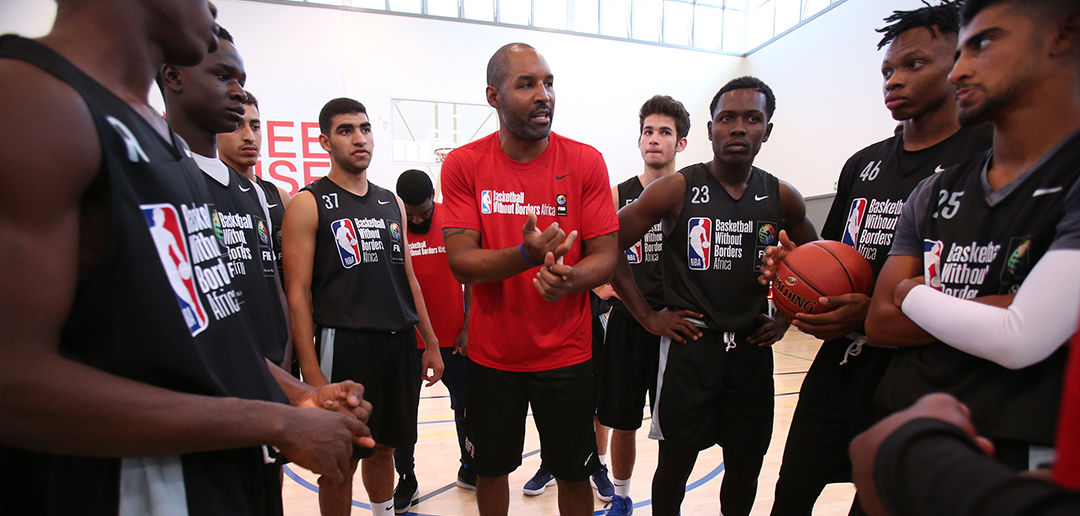Fitness & Wellness
Building resilience - The mental hack to better sports performance

On the road to achieving sporting success, being subjected to high pressure situation is unavoidable. Every athlete dreams of making a mark in their sporting career. One can only imagine the pressure an athlete experiences when competing against talented athletes. Some athletes succumb to this pressure and under-perform while others overcome to attain excellence. The ability to remain calm in high-pressure situation distinguishes a successful athlete from the rest. The process of positively adapting in the face of adversity is known as resilience. In essence, it is a skill that helps an athlete to manage, support and enhance their mental health in the context of significantly stressful situation.
Many successful athletes across various sports have positively perceived adverse situations. Michael Jordan, one of the most celebrated basketball players, manifested resilience throughout his sporting career.
“I’ve missed more than 9,000 shots in my career. I’ve lost almost 300 games. 26 times, I’ve been trusted to take the game winning shot and missed. I’ve failed over and over and over again in my life. And that is why I succeed.”-Michael Jordan
How to build resilient athletes?
Resilience can be trained, developed and enhanced. Pressure Inurement Training is an empirically supported strategy to train resilience.
2016 Rio Olympic Games was unarguably the most celebrated performance of the Team Great Britain, winning a total of 34 medals. A part of this success should be credited to the Pressure Inurement Training Program designed and employed by the team of performance psychologists.
What is Pressure Inurement Training?
Analogous to vaccines, Pressure Inurement Training involves gradually exposing an individual to pressure situations via challenge and regulation of the environment. This manipulation of the environment in the practice session promotes learning and use of psychological coping skills while experiencing stressors, and thereby increasing an individuals’ psychological resilience.
Pressure Inurement Training will be the most effective when conducted within a safe environment providing additional psychological support, by someone the athlete trusts. For these reasons, the coach suits best to carry out this training as they have built rapport with the athlete and can integrate into their existing training routine.
 The coach suits best to carry out Pressure Inurement Training as they have built rapport with the athlete and can integrate into their existing training routine.
The coach suits best to carry out Pressure Inurement Training as they have built rapport with the athlete and can integrate into their existing training routine.
How to create a balance between challenge and support?
CHALLENGE THE ATHLETES
- Increase the demands you place on them.
- Increase the difficulty of the tasks, skills, rules into training.
- Set high expectation and encourage athletes to undertake challenging goals.
- Increase training frequency, duration or intensity.
Bob Bowman emphasized the need to create uncomfortable situations, weekly three or four times, in practice sessions for his swimmers. He once deliberately stepped on Michael Phelps’ goggles, breaking them before he swam, to put him in a pressure situation to get him used to this scenario if it ever occur, which it did, in 2008 Beijing Olympic final. This challenging demand did pay off, as Phelps’ was prepared to overcome the adversity, winning a gold medal.
Increase the significance for the appraisal of challenges
- Increase the importance of challenge.
- Use consequences in training e.g. rewards, punishments, etc.
- Make demands important and relevant to athlete’s personal goals.
**The coach must pay close attention to athlete’s response to ensure suitable support is provided to allow athletes to feel competent and confident to deal with the challenges.
Support the Athletes
- Normalize making mistakes and learning from it.
- Encourage athlete participation and taking responsibility of their goals.
- Facilitate learning and use of psychological skills e.g. mental imagery, self-talk, etc.
- Brief & debrief before and after the Pressure Inurement Training.
TOO MUCH CHALLENGE AND NOT ENOUGH SUPPORT
When athletes perceive the added challenge to be beyond their coping resources, they are likely to react in a debilitating way which might negatively affect their performance and well-being.
Reduce the challenge i.e. demands or/significance of the task
- Gain insights from athlete about the elements of the challenge they are finding difficult to - cope with, accommodate their views and re-assess your approach.
- Increase the psychological support
- Provide motivational feedback such as:
“Well done, good use of breathing technique to deal with the challenging situation.”
“Good try, next time try working on making quick decisions to cope better.”
 When athletes perceive the added challenge to be beyond their coping resources, they are likely to react in a debilitating way which might negatively affect their performance and well-being. (Source: The Learning Network - The New York Times)
When athletes perceive the added challenge to be beyond their coping resources, they are likely to react in a debilitating way which might negatively affect their performance and well-being. (Source: The Learning Network - The New York Times)
HIGH CHALLENGE AND HIGH SUPPORT
In a balanced challenge-support environment, athletes are likely to feel confident about their skills to manage the increased challenge and react in a facilitative way that positively influences their performance and well-being.
- Gradually increase the demands and significance of the challenge.
- Discuss about the strengths and areas of improvements with the athlete to guide your further challenges.
- Provide them developmental feedback.
- Inform the athletes about how can they improve further to cope with bigger challenges.
“Great use of your skills, let’s make it more challenging”
“How can you translate these learning in a competition?”
“What’s one thing that you could do differently to perform better?”
Resilience is something that can be trained and developed. A coach is one of the most important pillars supporting an athlete, and are the best suited to conduct Pressure Inurement Training. Coaches should thus closely monitor athletes to ensure adequate support is provided. Along with support, an athlete also requires a challenging environment that will help in improving athletic performance under pressure. Continuously adjusting and balancing challenge and support as per the ability of an athlete to cope with the demands of pressure is of utmost need so the athlete can be prepared under any circumstances. It is also essential to gradually increase challenge to avoid burnout and chronic stress.
References:
Brown, D.J. and Fletcher, D., 2017. Effects of psychological and psychosocial interventions on sport performance: A meta-analysis. Sports Medicine, 47(1), pp.77-99.
Fletcher, D. and Sarkar, M., 2012. A grounded theory of psychological resilience in Olympic champions. Psychology of sport and exercise, 13(5), pp.669-678.
Fletcher, D. and Sarkar, M., 2013. Psychological resilience: A review and critique of definitions, concepts, and theory. European Psychologist, 18(1), p.12.
Fletcher, D., & Sarkar, M. (2016). Mentzal fortitude training: An evidence-based approach to developing psychological resilience for sustained success. Journal of Sport Psychology in Action, 7(3), 135-157.
Sarkar, M. and Fletcher, D., 2014. Psychological resilience in sport performers: a review of stressors and protective factors. Journal of sports sciences, 32(15), pp.1419-1434.
Also read: The top 4 factors that have an impact on your mental health






